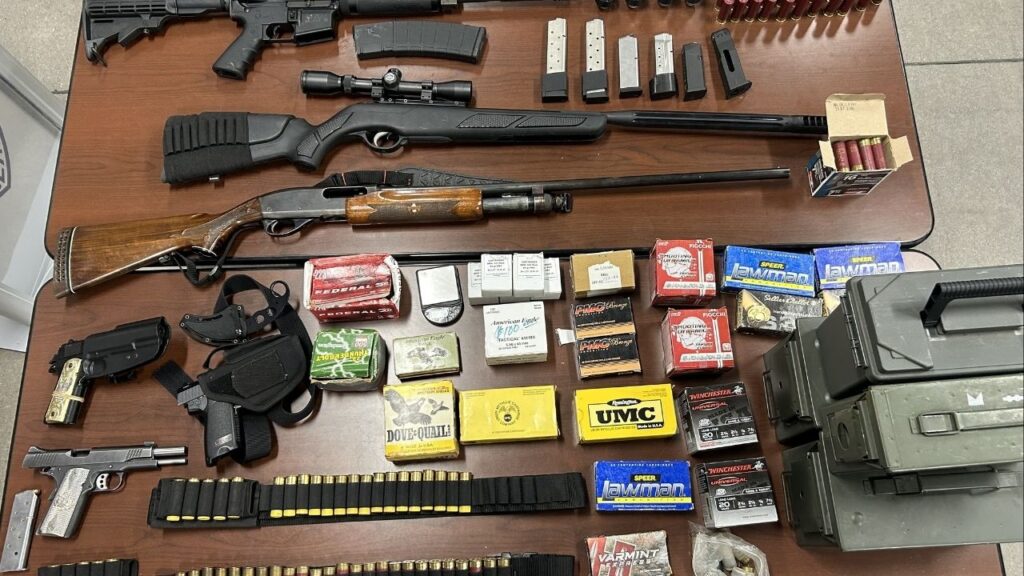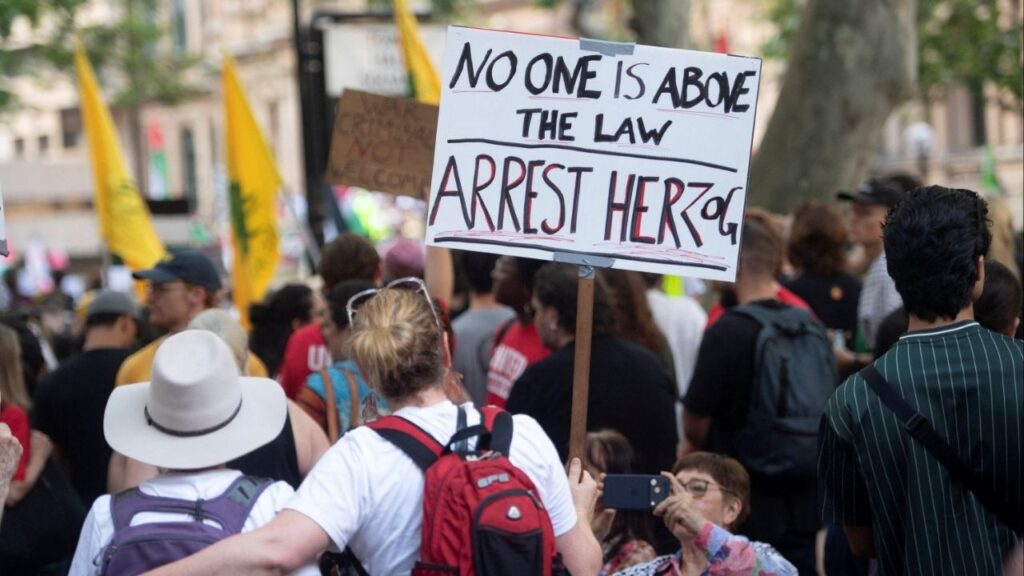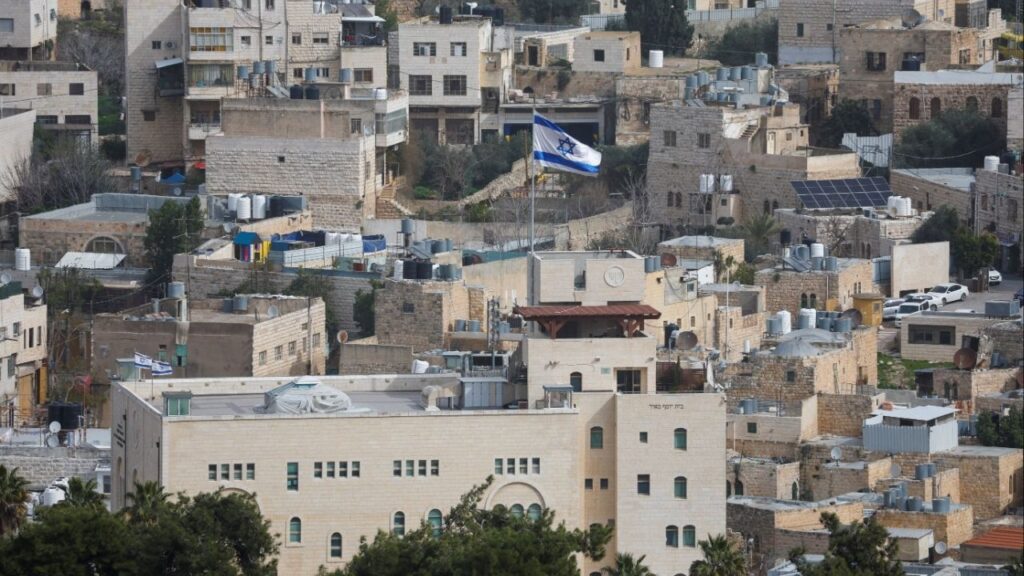Despite Israel's daily pause in fighting, extreme anarchy and armed gang activities in the Gaza Strip have prevented the distribution of desperately needed aid to Palestinians. (AP/Jehad Alshrafi)

- The extreme anarchy in the Gaza Strip has made it too dangerous for relief groups to distribute urgently needed aid, despite Israel's daily pause in fighting.
- More than 1,000 truckloads of supplies remain stranded near the Kerem Shalom border crossing due to the threat of looting and attacks by armed gangs.
- The Israeli military's pause in fighting has not significantly improved the humanitarian situation, with chaos and lack of governance hampering aid efforts.
Share
|
Getting your Trinity Audio player ready...
|
The extreme anarchy that has gripped the Gaza Strip is making it too dangerous and difficult to distribute desperately needed aid in the south, relief groups and others said, despite a daily pause in fighting that Israel is observing along a key road there.
1,000 Truckloads of Supplies Stranded in Gaza
Days after the pause took hold, more than 1,000 truckloads of supplies remained stranded in Gaza near the Kerem Shalom border crossing with Israel, with thousands of tons of food, medicine and other goods mere miles from Palestinians who need them, aid groups and Israeli officials said.
The threat of looting and attacks by armed gangs have forced relief groups to stop delivering assistance in southern Gaza. Trucks using supply routes have been riddled with bullet holes. Businesspeople sending commercial goods into the territory and aid agencies have decided they cannot risk employees’ lives on the drive.
As a result, the Israeli military’s decision to pause fighting for hours each day along the aid route has so far produced scant humanitarian benefit.
The grim situation is part of the domino effect of the Israeli campaign in Gaza, which has toppled much of the Hamas government without any civilian administration to take its place.
Related Story: Oxfam CEO Slams UK Arms Sales Amid Gaza Crisis
Organized Crime Groups Filled Place of Police
In much of Gaza, there are no police officers to prevent chaos, few municipal workers to clean up heaping mounds of rubble and trash, and only the bare minimum of public services. Organized crime groups have filled the vacuum, their affiliations — whether to clans in Gaza or armed groups like Hamas — are still unclear.
Rear Adm. Daniel Hagari, the Israeli military spokesperson, said Wednesday that Israel’s leaders needed to advance an alternative to Hamas in Gaza to distribute food and handle public services, or else risk seeing the group that led the Oct. 7 assault on Israel return to power.
“The idea that it is possible to destroy Hamas, to make Hamas vanish — that is throwing sand in the eyes of the public,” Hagari said in a televised interview. “If we do not bring something else to Gaza, at the end of the day, we will get Hamas.”
His remarks came amid growing and unusually public friction between the Israeli military and the country’s political leadership. More than eight months into the war, Prime Minister Benjamin Netanyahu has yet to articulate a clear plan for stabilizing Gaza or administering it after the war, although he has ruled out both the internationally backed Palestinian Authority taking charge and Israeli settlements there.
Gazans Experience Chaos Fighting for Aid
In the meantime, Palestinians in Gaza endure widespread chaos and privation. Relief groups say far too little aid is entering the territory, and even that often cannot reach the people who need it. Since Israel’s military offensive in the southern city of Rafah shut down another crossing last month, Kerem Shalom has become the only conduit for aid into southern Gaza.
Manhal Shaibar, who oversees a Palestinian trucking company that works at the Kerem Shalom crossing, said some goods were spoiling in the heat on the Gaza side. Some commercial trucks were managing to make their way out under heavy guard, despite the assaults by armed Palestinians, he said, but the aid was stuck.
“People in Gaza can’t find food,” Shaibar said. “But the goods are strewn around here in the crossing.”
“It’s a disaster,” he said.
Farhan Haq, a United Nations spokesperson, told reporters Tuesday that the Israeli announcement of a pause “has yet to translate into more aid reaching people in need.”
Related Story: ‘A Hellscape’: Dire Conditions in Gaza Leave a Multitude of Amputees
Criminal Gangs Operate in Near-Total Freedom
A person involved in the effort to distribute aid said that armed criminal gangs were operating with near-total freedom in the Israel-Gaza border area where trucks must pass and attacking them daily. The person described the attacks as coordinated and organized, not the spontaneous looting by desperate civilians that vexed aid convoys in earlier months of the war.
Armed attackers shoot at the trucks, force them to stop and sometimes beat the drivers before stripping the trucks of their contents, the person said.
And there is no one to call for help: The Hamas-run police force that helped secure the passage of aid earlier in the war melted away months ago after the Israeli military killed several officers. (The person spoke on the condition of anonymity because he was bound by confidentiality agreements.)
The “lack of any police or rule of law in the area” has rendered the roads surrounding the crossing highly dangerous, Haq said.
Related Story: Blinken Calls on Hamas to Accept Gaza Cease-Fire Plan After UN Security Council ...
Israel’s Rafah Offensive Halted Aid Trucks Coming In
The number of international aid trucks reaching Palestinians in southern Gaza has plummeted since Israel’s Rafah offensive began in early May. Only a small amount of aid has trickled through Kerem Shalom, aid officials say, including what a Western aid official said were 30 trucks sent via Jordan on Monday.
Another border crossing, at Rafah on the Egypt-Gaza border, has remained closed since early May, although the Egyptian authorities have allowed some trucks to cross through there en route to Kerem Shalom. Egypt and Israel have wrangled for weeks over how and when to reopen the Rafah crossing.
In an attempt to make up for the shortfall, Israeli authorities began allowing more commercial goods to enter Gaza from Israel and the occupied West Bank. Unlike U.N. convoys, these trucks tend to travel with armed protection, allowing them to traverse the dangerous terrain.
Israel had paused commercial deliveries for about two weeks in an attempt to allow aid trucks to move through, according to a U.S. official working on the aid effort. But on Sunday, with no aid traveling along that road because of insecurity, Israel resumed sending the commercial trucks, 20 of which went into Gaza, the official said. The U.S. official wasn’t authorized to speak publicly.
–
This article originally appeared in The New York Times.
Vivian Yee and Aaron Boxerman
c.2024 The New York Times Company
Distributed by The New York Times Licensing Group
RELATED TOPICS:
Categories

Madera Police Arrest Man After Sunday Gunfire Report
Instagram, YouTube Addiction Trial Kicks off in Los Angeles

















